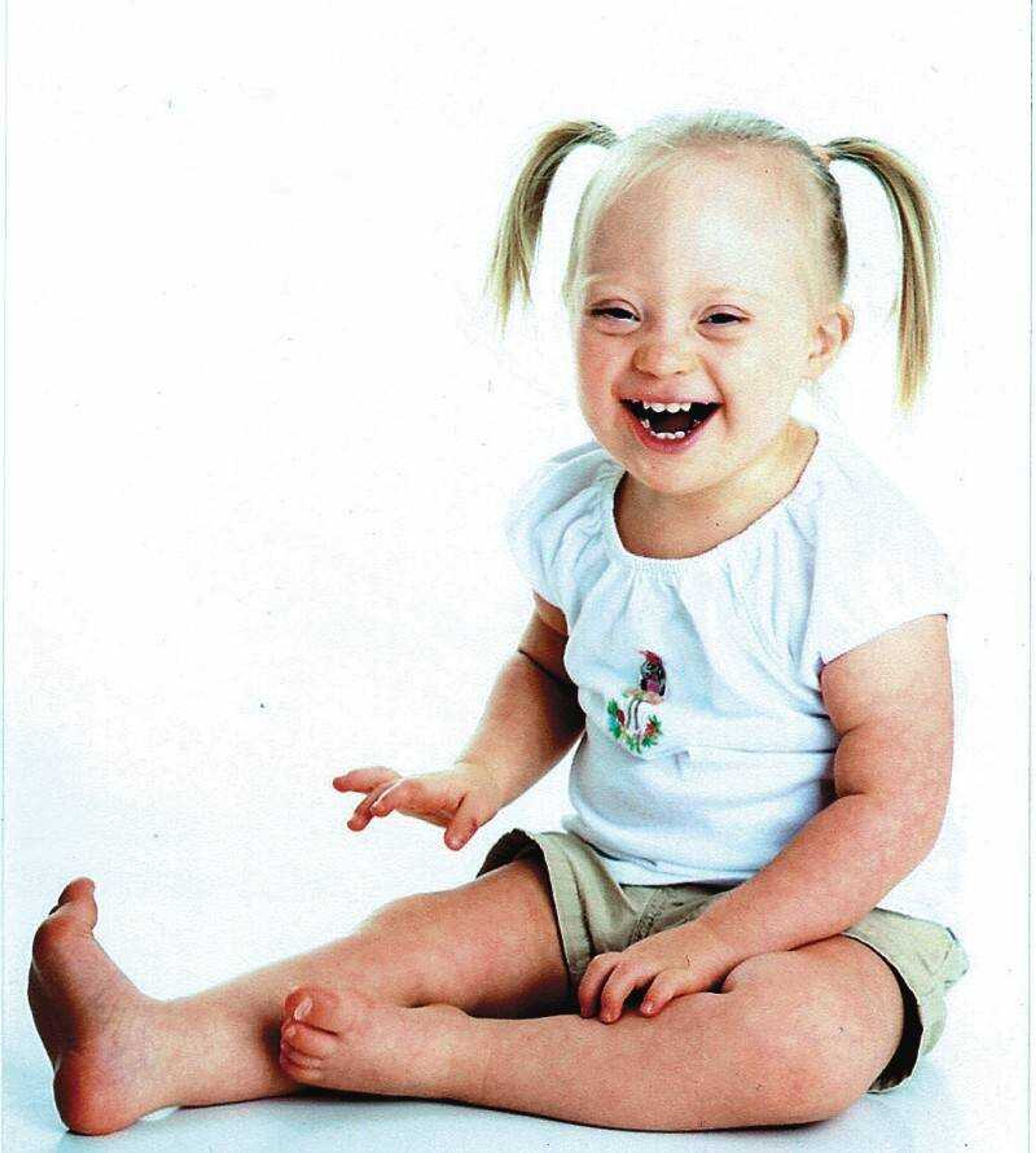Life with Ella
It's hard to get past Ella Kinder's smile. It extends past her lips ... to her blue eyes; they light up when she laughs. To her hands, clapping in excitement.To her voice, giggling softly into her plush yellow duck. This is Ella. She has Down syndrome...
It's hard to get past Ella Kinder's smile. It extends past her lips ... to her blue eyes; they light up when she laughs. To her hands, clapping in excitement.To her voice, giggling softly into her plush yellow duck.
This is Ella. She has Down syndrome.
That's how Julia Kinder introduces her 2-year-old daughter.
First and foremost, she is Ella. She does have Down syndrome, but that is secondary to everything else she is, Kinder explained.
For one, Ella is smart, already reading some words and using sign language to communicate more than 100 other words. She knows her colors and shapes. She knows the difference between a giraffe and an elephant.
She knows the sound a cow makes.
"There's still the myth out there that Down syndrome kids don't know anything. We're proving them wrong," says Kinder, a Cape Girardeau resident who recently began volunteering with the Down Syndrome Association of St. Louis.
'My child has more chromosomes than yours'
That's what the bumper sticker on Julia Kinder's car says.
Around 5,000 children are born each year in the United States with Down syndrome, according to the National Down Syndrome Congress; about one in every 800 to 1,000 births.
Down syndrome is a chromosome disorder that results in an extra chromosome in every cell of the body. Instead of the usual 46, individuals with Down syndrome have 47. The exact cause is not known.
Julia and Mitch Kinder did not have an amniocentesis, the test done during pregnancy to detect problems such as Down syndrome. The Cape Girardeau couple didn't learn of the disorder until the day after Ella was born.
"When we found out, it was like the world had ended," Julia Kinder said. "It feels like your baby died, and instead you have this other baby they say is yours."
The couple went through the typical stages of grief ... denial, anger.
They discovered there was not an established support system in Southeast Missouri for parents dealing with Down syndrome.
"I was surprised by how much I didn't know. And I should have known, I'm a doctor," Kinder said. "I had know idea what daily life would be like."
Two years later, Kinder has discovered that daily life with Ella is one surprise after another.
Teaching Ella
The kitchen table at the Kinder home is covered in teaching tools.
Felt fabric squares in various colors. Paper booklets of words that Ella is learning to sign. Tools used during meals as part of her oral motor therapy.
The walls of Ella's playroom are covered as well. Large posters in pink, red, blue, green ... each color identified with signs. Heart, circles and squares are tacked up as well, with corresponding signs.
Even away from home, everything is a lesson.
"At the grocery story, we read the labels to her. When we're driving our car, we say 'oh look, there goes a WHITE car, Ella.' In the morning, Mitch reads the newspaper out loud to her," said Kinder. "We are constantly teaching her."
And every day, Kinder says, Ella never fails to surprise her.
"No matter what I ask her to do, she always goes beyond that," Kinder said.
Spreading the word
Through Kinder's work with the Down Syndrome Association of St. Louis, she works with other families in Southeast Missouri who have children with the disorder. She serves as part of their support system, answering questions and listening to their concerns.
She also hopes to begin speaking to local clubs, church groups, schools, medical students and anyone else interested in learning more about Down Syndrome. She will eventually work with labor and delivery nurses and pediatric nurses in local hospitals to help spread awareness among them as well.
"Nobody knows what to say to a new mom dealing with this," Kinder said.
There are definite things not to say, though. Among Kinder's biggest pet peeves:
"There is a reason for everything."
"You got this baby because you can handle it."
"I know how you feel."
Instead, she suggests phrases such as, "What a beautiful baby!" or "Just tell me what you need, I'm here for you."
For the most part, Ella is like a typically developing child. She plays, eats, sleeps, take baths and chases her cat.
"Ella doesn't care. She doesn't know that she has an extra chromosome. She's happy," said Kinder.
The Kinders' initial fears about their baby -- that she would have severe physical and intellectual problems, that she would never be able to feed herself and would always live at home and need constant care -- have not been realized.
"People with Down syndrome have written books. They've been on TV shows. They've swam the English Channel," said Kinder. "I don't know what to expect for Ella, because the possibilities are endless."
cmiller@semissourian.com
335-6611, extension 128
Connect with the Southeast Missourian Newsroom:
For corrections to this story or other insights for the editor, click here. To submit a letter to the editor, click here. To learn about the Southeast Missourian’s AI Policy, click here.










